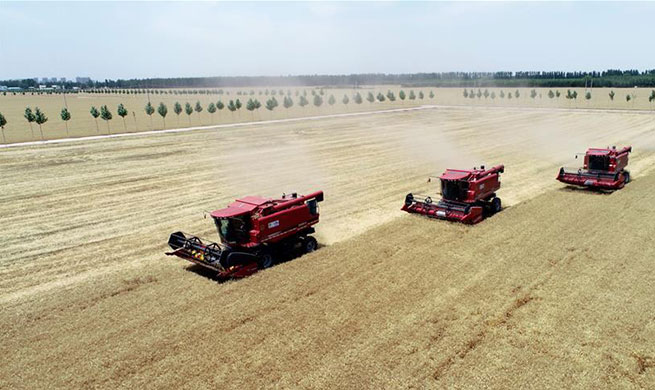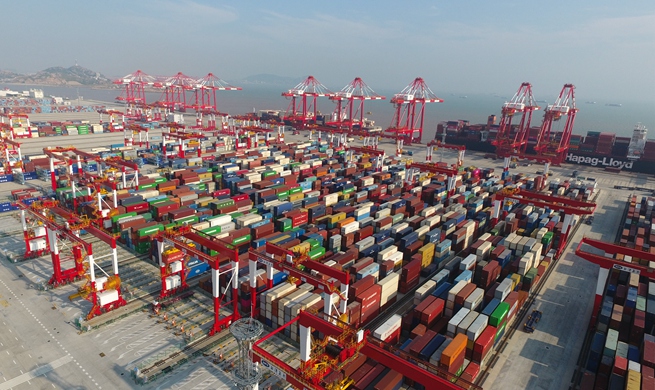BERLIN, Aug. 7 (Xinhua) -- The German government should introduce a levy on meat to improve living conditions for livestock, the German Animal Welfare Federation announced on Wednesday.
"Parallel to the CO2 tax we also need a meat tax," Thomas Schroeder, President of the German Animal Welfare Federation told the German newspaper Welt.
The proceeds could be used to finance the conversion of German livestock stables while the price increase per kilo of meat, liter of milk or egg carton would be "only a few cents," according to Schroeder.
Agricultural politicians from the German Social Democrats (SPD) and the Green Party supported the idea of increasing the price of meat but preferred to raise the value-added tax (VAT) on meat.
"I am in favor of abolishing the VAT reduction for meat and earmarking it for more animal welfare," Friedrich Ostendorff, agricultural policy spokesperson for the Green parliamentary group told the newspaper Welt.
It was "not possible to explain" why meat in Germany was taxed at 7 percent while oat milk, for example, was taxed at 19 percent, criticized Ostendorff.
Most staple foods in Germany are taxed at only 7 percent including for example, flour, spices, meat, vegetables and fruit.
Meanwhile, beverages are taxed at 19 percent as well as food that is considered a luxury, such as oysters, lobster and caviar.
Rainer Spiering, spokesperson for the German Social Democrats (SPD) on agricultural policy, similarly supported an increase in the VAT on meat.
"A meat tax, for the sake of simplicity by increasing VAT to 19 percent, would be a possible way forward but one that would mainly affect consumers," Spiering told the German newspaper Welt.
The SPD politician stressed that German meat producers and food retailers needed to "make their contribution to sustainable livestock farming".
The German government reacted cautiously to proposals for a higher VAT on meat and a spokesperson for the Ministry of the Environment said that the main problem was high livestock numbers and intensive animal husbandry.
There were, however, more effective means than VAT laws to achieve a "reduction" including stricter fertilizer regulations in regions with many large livestock stalls, according to the German environment ministry spokesperson.
According the scientific advisory board of the German Ministry of Agriculture, the costs for the conversion of animal farming were estimated at 3 to 5 billion euros (3.36 to 5.6 billion U.S. dollars).
The road to socially sustainable livestock farming would cost billions of euros, which farmers in "Germany cannot bear alone," said the conservative CDU's agricultural spokesperson Albert Stegemann on Wednesday.
Stegemann was open to the idea of a meat tax, which he described as "a constructive proposal," but the conservative politician emphasized that the additional income should be designated "as an animal welfare premium" in order to support German livestock farmers during restructuring.
The German Farmers' Association (DBV) rejected a meat tax because it was "not the tax authorities but the farmers who need funds and support for the further development of animal husbandry," said DBV secretary general Bernhard Kruesken.
Neither animal welfare nor climate protection in Germany would be served if "the market obtains lower animal welfare standards from other EU countries at low prices," criticized Kruesken.
Kirsten Tackmann, agricultural spokesperson for the German Left Party (Die Linke), emphasized that "it is wrong to take the approach of wanting to regulate animal welfare by means of a meat tax, which socially disadvantaged people also have to pay".
In recent years, German per capita consumption of meat had been falling and in 2017 had reached the lowest point for 20 years, according to the German Federal Office for Agriculture and Food (BLE).
German per capita meat consumption had fallen to 59.7 kilograms in 2017, compared to 62.4 kilograms ten years ago, the BLE found.













